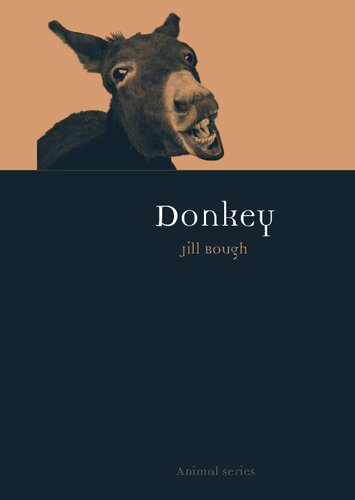

Most ebook files are in PDF format, so you can easily read them using various software such as Foxit Reader or directly on the Google Chrome browser.
Some ebook files are released by publishers in other formats such as .awz, .mobi, .epub, .fb2, etc. You may need to install specific software to read these formats on mobile/PC, such as Calibre.
Please read the tutorial at this link: https://ebookbell.com/faq
We offer FREE conversion to the popular formats you request; however, this may take some time. Therefore, right after payment, please email us, and we will try to provide the service as quickly as possible.
For some exceptional file formats or broken links (if any), please refrain from opening any disputes. Instead, email us first, and we will try to assist within a maximum of 6 hours.
EbookBell Team

5.0
78 reviewsThough donkeys have historically been among our most useful domesticated animals—from plowing fields to navigating difficult terrain—they have been much maligned in popular culture and given very little respect. So much so, that their perceived qualities of stupidity and stubbornness have made their way into the language of insult. But in Donkey, Jill Bough champions this humble creature, proving that after 10,000 years of domestication, this incredibly hard-working animal deserves our appreciation.
Bough reveals the animal’s historic significance in Ancient Egypt, where it was once highly regarded—even worshipped. However, this elevated status did not endure in Ancient Greece and Rome, where donkeys were denigrated, ridiculed, and abused. Since that time, donkeys have continued to be associated with the poorest and most marginalized in human societies. All that time and all over the world, donkeys continue to be used for innumerable tasks, and even today, donkeys are considered to be one of the best draught animals in developing nations, where they continue to make a vital contribution. Bough rounds out her account with a look at the variety of social, cultural, and religious meanings that donkeys have embodied, especially in literature and art.
With accounts that are both fascinating and touching, this cultural history of the donkey will inspire a new respect and admiration for this essential creature.